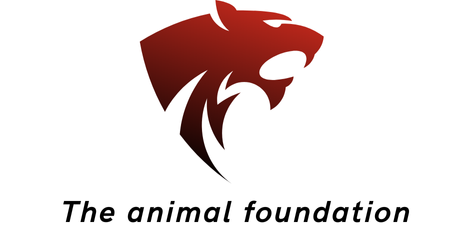Top Tips for Keeping Your Goldendoodle Puppy Healthy in the Heart of Scotland’s Cities
Understanding Your Goldendoodle Puppy
If you’re a new owner of a Goldendoodle puppy in one of Scotland’s vibrant cities, you’re likely eager to ensure your new family member stays healthy and happy. Goldendoodles, a cross between a Golden Retriever and a Miniature Poodle, are known for their intelligence, affectionate nature, and low-shedding coat, making them a popular choice for many dog owners.
Temperament and Needs
Goldendoodles inherit the friendly and outgoing temperament of Golden Retrievers and the intelligence of Miniature Poodles. This breed is naturally athletic and extremely active, especially during the puppy years. Here are some key points to consider:
Cela peut vous intéresser : Ultimate Guide: Safeguarding Your Chickens from Fox Predators in Rural England
- Exercise Needs: Goldendoodles require extensive daily exercise to stay happy and healthy. This includes walks, runs, and playtime in dog parks or open spaces. Dr. Savageau notes, “Large breed dogs generally require more exercise compared to small dogs. They often have higher energy levels and need regular physical activity and mental stimulation to prevent boredom and behavioral issues.”
- Training: Given their high intelligence, Goldendoodles need regular training and mental stimulation. This can include obedience training, socialization, and engaging in activities that challenge their minds. As James Ross from the mobile pet care service explains, “Training should focus on proper socialization, obedience, and leash manners to manage their potentially powerful nature.”
- Grooming: Goldendoodles have a low-shedding coat, but they still require regular grooming to prevent matting and excessive shedding. Regular brushing, especially during shedding seasons, is crucial for maintaining their coat and overall hygiene.
Creating a Healthy Environment at Home
Your home environment plays a critical role in your Goldendoodle puppy’s health and well-being. Here are some tips to ensure your home is dog-friendly and healthy for your pet:
Dog-Proofing Your Home
Before bringing your puppy home, it’s essential to dog-proof your living space. Here are some steps to take:
Lire également : Ultimate Guide to Keeping Your Pet Safe and Calm During Guy Fawkes Night Fireworks
- Remove Hazardous Items: Ensure that any hazardous items such as cleaning supplies, electrical cords, and toxic substances are out of reach.
- Secure Furniture: Secure any heavy furniture or appliances to prevent them from tipping over.
- Block Off Areas: Block off areas you don’t want your puppy to access, such as certain rooms or areas with fragile items.
Providing a Comfortable Space
Your puppy needs a comfortable and safe space to rest and relax. Here’s how you can provide that:
- Bedding: Provide a comfortable dog bed in a quiet area of your home.
- Crate Training: Crate training can help with potty training and provide a safe space for your puppy when you’re not home.
- Toys and Chews: Ensure your puppy has plenty of toys and chews to keep them occupied and prevent destructive behavior.
Nutrition and Diet
A balanced diet is crucial for your Goldendoodle puppy’s health. Here are some tips on what to feed your puppy and how to manage their diet:
High-Quality Dog Food
Choose high-quality dog food that is suitable for your puppy’s age, size, and activity level. Here are some guidelines:
- Puppies: Puppies over two months old should be fed approximately 1/3 to 1/2 cups of dry dog food around three times a day.
- Adults: Adult Goldendoodles require greater levels of food due to their active lifestyle. Experts suggest 2 to 3 cups of high-quality dog food twice a day.
Avoiding Harmful Foods
There are certain foods that you should avoid giving to your puppy to prevent health issues. Here are some of the worst foods for dogs:
- Chocolate
- Fatty Meats
- Foods with High Levels of Sodium (Salt)
- Dairy Products (Such as milk or ice cream)
- Raw Meats, Eggs, or Fish
- Candy
- Grapes and Raisins
- Garlic or Onions
- Foods with High Levels of Sugar
- Avocados
Exercise and Physical Activity
Regular exercise is vital for your Goldendoodle puppy’s physical and mental health. Here are some tips on how to ensure your puppy gets enough exercise:
Daily Walks and Runs
Daily walks and runs are essential for your puppy’s physical health. Aim for at least one hour of exercise per day, which can include:
- Walks: Short to medium-length walks around your neighborhood or local parks.
- Runs: If your puppy is old enough, short runs can be a great way to burn off energy.
- Playtime: Playtime in dog parks or open spaces where your puppy can run freely and interact with other dogs.
Mental Stimulation
In addition to physical exercise, mental stimulation is crucial to prevent boredom and behavioral issues. Here are some ways to mentally stimulate your puppy:
- Training Sessions: Regular training sessions can help challenge your puppy’s mind and prevent boredom.
- Interactive Toys: Use interactive toys that require problem-solving to keep your puppy engaged.
- Socialization: Socialize your puppy with other dogs and people to help them develop good social skills.
Health Concerns and Preventive Care
Goldendoodles, like other breeds, are prone to certain health issues. Here are some health concerns to be aware of and how to prevent them:
Common Health Issues
- Hip and Elbow Dysplasia: Common in larger breeds, hip and elbow dysplasia can be prevented with regular check-ups and maintaining a healthy weight.
- Skin Issues: Regular grooming and skin checks can help prevent skin issues such as allergies and infections.
- Heart Problems: Regular cardiac exams can help detect heart problems early on.
Preventive Care
Preventive care is key to keeping your puppy healthy. Here are some preventive measures to take:
- Regular Vet Visits: Regular visits to the vet can help detect health issues early on. Make sure your puppy gets at least one annual check-up.
- Vaccinations: Ensure your puppy is up-to-date on all vaccinations to prevent diseases.
- Parasite Control: Regular tick checks and preventive measures against parasites such as fleas and ticks are essential, especially in areas like Scotland where Lyme disease is prevalent.
Pet Insurance: A Safety Net for Your Pet
Pet insurance can be a lifesaver in case your puppy falls ill or gets injured. Here are some tips on choosing the right pet insurance:
Types of Pet Insurance
- Accident Only: Covers injuries from accidents like cuts, broken bones, and sprains. This includes vet exams, diagnostic testing, hospitalization, medications, and rehabilitation.
- Wellness and Routine Care: Helps manage and offset the cost of preventive care such as routine check-ups, vaccinations, dental cleanings, and flea and tick prevention.
Key Features to Look For
When choosing a pet insurance policy, here are some key features to look for:
- 24/7 Vet Helpline: Access to a 24-hour veterinary helpline for immediate advice on emergency care or general health questions.
- Direct Vet Payments: Some insurance providers offer the option to pay your vet bills directly, so you don’t have to pay out of pocket and wait for reimbursement.
- Waiting Periods: Consider the waiting periods for accidents and illnesses to ensure you understand when coverage will begin.
Socialization and Training
Socialization and training are crucial for your Goldendoodle puppy’s development. Here are some tips on how to socialize and train your puppy:
Socialization Checklist
Socializing your puppy by gradually exposing them to various experiences is vital for a well-behaved adult dog. Here’s a socialization checklist:
- People: Expose your puppy to people of all ages and backgrounds.
- Other Dogs: Socialize your puppy with other dogs to help them develop good social skills.
- New Environments: Introduce your puppy to new environments such as parks, dog parks, and public places.
- New Sounds and Smells: Expose your puppy to new sounds and smells to help them become confident in new situations.
Training Tips
Training your puppy requires patience, consistency, and positive reinforcement. Here are some training tips:
- Positive Reinforcement: Use positive reinforcement techniques such as treats and praise to encourage good behavior.
- Consistency: Be consistent in your training to avoid confusing your puppy.
- Professional Help: If you’re having trouble training your puppy, consider seeking help from professional dog trainers.
Keeping your Goldendoodle puppy healthy in the heart of Scotland’s cities requires a combination of good nutrition, regular exercise, preventive care, and proper training. By following these genuine tips, you can ensure your puppy grows into a happy and healthy adult dog.
Final Tips for New Owners
- Make Sure: Make sure your puppy gets the proper daily exercise and mental stimulation to prevent boredom and behavioral issues.
- Be Patient: Be patient with your puppy as they grow and develop. Training and socialization take time.
- Seek Help: Don’t hesitate to seek help from professional dog trainers or veterinarians if you need advice or assistance.
By providing a loving home, proper care, and the right environment, you can help your Goldendoodle puppy thrive in Scotland’s cities.
Table: Comparative Health Issues in Goldendoodles and Other Breeds
| Breed | Common Health Issues | Life Expectancy |
|---|---|---|
| Goldendoodle | Hip and Elbow Dysplasia, Skin Issues, Heart Problems | 10-12 years |
| Golden Retriever | Hip and Elbow Dysplasia, Mast Cell Tumors, PRA | 10-12 years |
| Labrador Retriever | Hip and Elbow Dysplasia, Obesity, Eye Problems | 10-12 years |
| Miniature Poodle | Eye Problems, Autoimmune Disorders, Joint Issues | 12-15 years |
Quotes from Experts
- “Training should focus on proper socialization, obedience, and leash manners to manage their potentially powerful nature.” – James Ross, Director of Field Operations for the mobile pet care service.
- “Large breed dogs generally require more exercise compared to small dogs. They often have higher energy levels and need regular physical activity and mental stimulation to prevent boredom and behavioral issues.” – Dr. Savageau.
- “Regular grooming of the animal is also crucial for maintaining proper hygiene and preventing a variety of pests from sticking to the Golden Retriever’s coat.” – PetHelpful Guide.
By following these tips and staying informed, you can ensure your Goldendoodle puppy leads a happy, healthy life in the heart of Scotland’s cities.
















